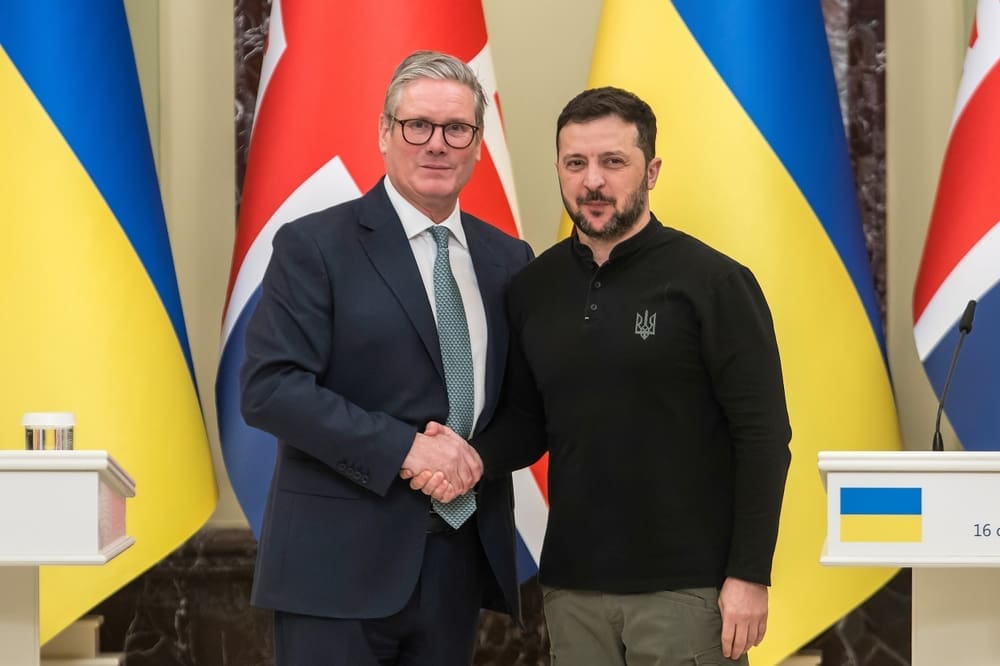As the Trump administration shifts its stance on support for Ukraine, Germany and the United Kingdom have assumed leadership of the Ukraine Contact Group, a coalition initially established and chaired by former U.S. President Joe Biden. This Friday, representatives from 40 countries are set to meet at NATO headquarters in Brussels to discuss military aid for Ukraine.
U.S. Secretary of Defense Pete Hegseth will participate digitally, while an in-person delegation from the United States will attend, as confirmed by German Defense Minister Boris Pistorius. Ukrainian President Volodymyr Zelenskyy is also expected to be present at the meeting.
Pistorius addressed the delegates, expressing concern over the ongoing conflict in Ukraine. He noted that despite international hopes, Russian President Vladimir Putin continues to launch attacks on Ukraine, causing significant civilian casualties. Pistorius emphasized the necessity of a strong military defense for Ukraine, citing increased attacks on civilian infrastructure and the tragic loss of lives, including children, in areas like the industrial town of Kryvyi Rih.
Announcement of Further Military Support
In light of recent developments, the German Bundestag’s Budget Committee has approved an additional €3 billion for Ukraine, building on a previously adopted debt-financed financial package. These funds are earmarked for air defense systems, guided missiles, and other military supplies. The support package includes four IRIS-T air defense systems, 300 guided missiles, 300 reconnaissance drones, 120 MANPADS, 25 Marder infantry fighting vehicles, five Leopard 1A5 main battle tanks, 14 artillery systems, 100 ground surveillance radars, 30 PATRIOT guided missiles, and 100,000 rounds of artillery ammunition.
Boosting the Bundeswehr
During his remarks, Pistorius also highlighted the newly formed coalition agreement between Germany’s Christian Democrats and Social Democrats, aimed at strengthening the Bundeswehr following recent federal elections. He emphasized the importance of this agreement for Germany’s and Europe’s security, indicating that the region is entering a new era that requires proving its military capabilities.
Pistorius stressed the need for Europe to enhance its deterrence and defense capabilities cohesively and promptly. He noted that substantial investments will be made to optimize the Bundeswehr’s structure, with a focus on efficiency and wise allocation of funds. The introduction of a new voluntary military service is planned, following the “Swedish model,” to address personnel shortages without reinstating compulsory military service, which was suspended in 2011.
Pistorius also underscored the importance of making the Bundeswehr more attractive to potential recruits and reducing bureaucratic hurdles to expedite procurement, planning, and infrastructure expansion during the current legislative period.
Impact on Daily Life
The developments in military support and defense strategies are likely to have significant implications for both the regional and global landscape. For Ukraine, increased military aid from Germany and other allies might bolster its defense capabilities, potentially altering the dynamics of the ongoing conflict and impacting the daily lives of its citizens. Enhanced security could lead to a sense of stability, although the persistent threat of conflict remains a concern.
In Germany, the focus on strengthening the Bundeswehr and adopting a voluntary military service model may influence public opinion and national policies. The move towards a more robust defense posture could impact the country’s budget allocations, prioritizing military spending over other public sectors. Furthermore, the emphasis on reducing bureaucracy and speeding up procurement processes might lead to more efficient government operations, affecting various aspects of civilian life.














